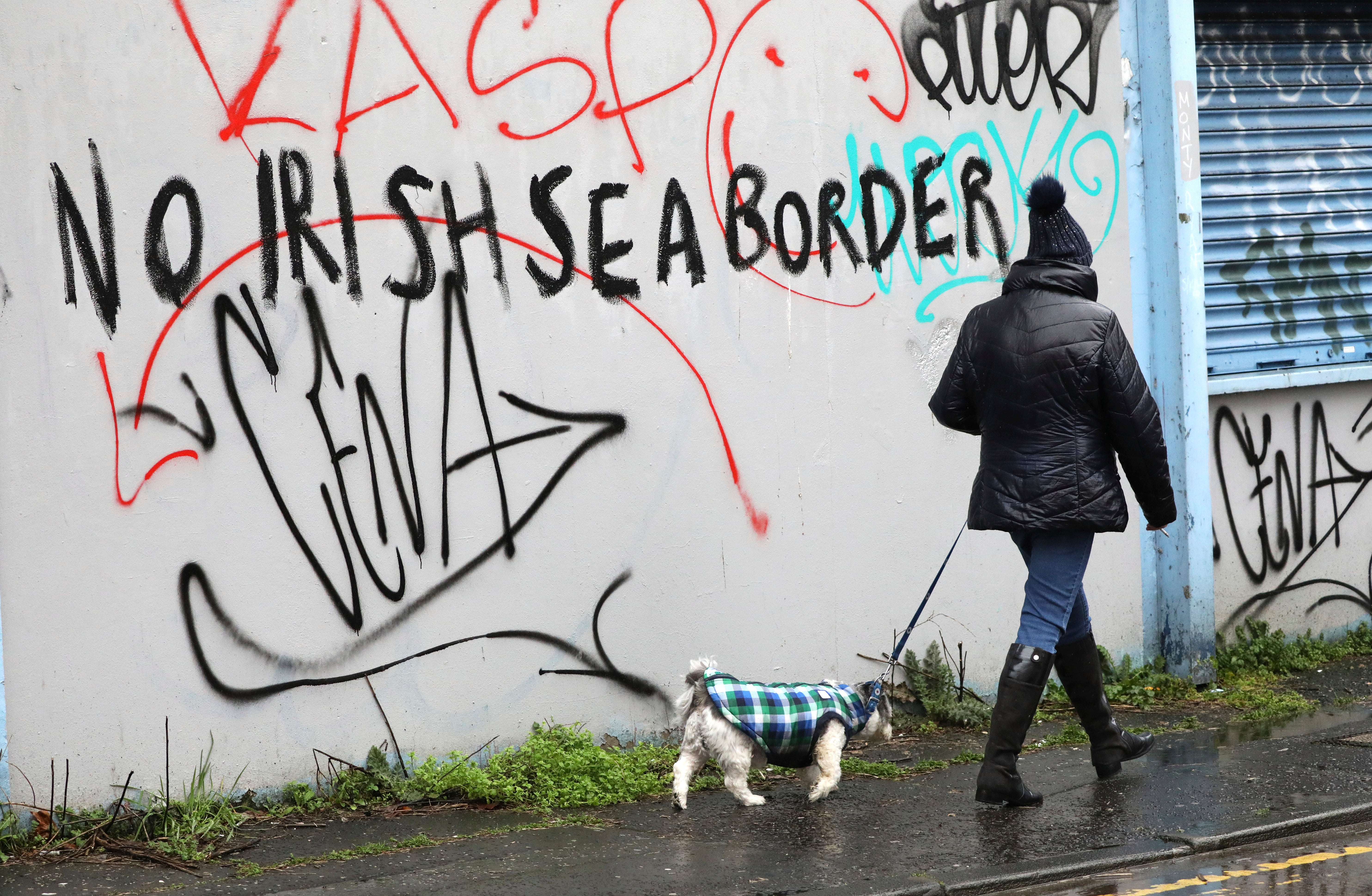The reality of a Brexit border in the Irish Sea is ‘not a small point of detail’
The EU is threatening legal action against the UK, accusing Boris Johnson of breaking the trade agreement, writes John Rentoul


Tony Blair got it right long ago. On 9 June 2016, two weeks before the Brexit referendum, he spoke alongside John Major in Derry in Northern Ireland. Long before most people had understood the problem, he tried to set it out as clearly as he could.
“You would have to end up either having border controls and customs checks on the border between north and south, between the Republic of Ireland and the UK … and the problems of doing that are absolutely immense, but the only alternative would then be to have them between Northern Ireland and the rest of the UK, which would plainly be unacceptable as well. So this is not a small point of detail,” he said.
Five years later it remains very far from being a small point of detail. The EU has threatened legal action against the UK government after Boris Johnson unilaterally extended transition arrangements to allow easier movement of goods between Northern Ireland and the rest of the UK.
Some of this row is posturing, on both sides. Johnson and David Frost, his new cabinet minister for overseeing things which are not a small point of detail, are trying to distract from the underlying fact, which is that they have imposed a border in the Irish Sea. The prime minister said he was taking “temporary and technical measures” to keep trade flowing, in order to try to paint the EU side as behaving unreasonably.
Fortunately for the prime minister, the EU side seems quite happy to adopt that role, not least because it has its own audiences to play to, which want to see the British being made to pay a price for leaving. It may even be, as Kwasi Kwarteng, the business secretary, suggested on the BBC’s Question Time last night, that the EU Commission sees this dispute as a way to distract attention from its woeful record on the coronavirus vaccine rollout.
What is notable is that the British government is holding back from going the whole Dominic Cummings, in that an official told Politico the UK has legal advice confirming that it is not in breach of international law. Indeed, the official even suggested that the UK was now the aggrieved, law-abiding party, in contrast to the behaviour of the EU at the end of January, when it threatened to tear up the trade agreement to blockade vaccine exports to Northern Ireland.
All of which is shadow boxing for political advantage, but it cannot conceal the underlying problem, which is as Blair set it out five years ago. The most sensible compromise would have been Theresa May’s plan to keep the UK in the EU customs union, which would have greatly simplified the checks on goods going between Northern Ireland and the Republic, which could have been carried out away from the border. May’s plan was for us to stay in the EU customs union temporarily, until the invention of magic technology that would allow us to leave, but the Brexit fundamentalists saw through that ploy and destroyed the deal.
Included among those Brexit fundamentalists were the Democratic Unionist Party, some of whose leading lights now admit privately that they made a historic error in opposing May’s deal. By helping to frustrate May, they paved the way for Johnson to shift from Blair’s plan A (a hard border between the north and south of Ireland) to his plan B (a border between one part of the United Kingdom and another). As Unionists, more loyal to the Union than many members of the Conservative and Unionist Party turned out to be, they should have understood better than most quite how unacceptable a border in the Irish Sea would be.
Well, they know now. The graffiti is going up on the walls of Belfast, “No Irish Sea Border”. The decayed remnants of loyalist paramilitaries are stirring to life. Some of Boris Johnson’s gesture politics is designed to try to protect the DUP, to distract from the mistake they made and to pretend that it can be smoothed over.
In the short term that might be possible. There is no reason why it should be harder to get goods to Northern Irish supermarkets now than it was before Brexit, except for a bit of extra paperwork. It is possible that the EU is behaving unreasonably for its own political reasons. The same goods observing the same standards are being moved around within the UK.
But there will be problems in future, as UK standards diverge from those of the EU. Then it will start to matter that Northern Ireland remains legally in the EU single market for some purposes but not for others.
This is not something that can just be waved away as “temporary and technical” for ever. “This is not a small point of detail,” as Blair said five years ago.



Join our commenting forum
Join thought-provoking conversations, follow other Independent readers and see their replies
0Comments